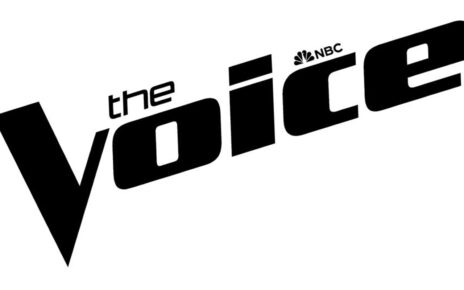Dissident Iranian film professionals are calling on the Academy of Motion Picture Arts (AMPAS) to consider an alternative film to represent Iran in the Best International Feature Film category from that submitted as the country’s official entry.
Related Stories
Oscars: Spain Selects J.A. Bayona’s Netflix Drama ‘Society Of The Snow’ For Best International Film Race
Top Iranian Filmmakers Strike A Blow For Women’s Rights And Democracy Movement
Iran’s government-controlled Farabi Cinema Foundation (FCF) announced on Tuesday that it had selected Reza Mirkarimi’s The Night Guardian as the country’s submission to the 96th Academy Awards.
The announcement comes just days after the first anniversary of the beginning of the Woman Life Freedom protests, provoked by the death of 22-year-old Mahsa Amini on September 16, 2022, after her police detention for not wearing her veil correctly.
More than 500 protestors have been killed by Iranian security forces over the past year and thousands have been injured. A number of directors including Jafar Panahi, Mohammad Rasoulof and most recently Saeed Roustayi have wound up in jail in a related crackdown on the country’s creative community.
“As the world is witnessing the oppression of the Iranian people by the Islamic Republic government and is aware of the terrifying pressure on Iranian artists, once again, the Iranian cinema’s representative at the Oscars has been announced by the state-controlled entity, Farabi,” the Iranian Independent Filmmaker Association (IIFMA) said in a statement.
“Over the past year, Iranian filmmakers have been imprisoned, interrogated, and intimidated, with Farabi being a key player in implementing this severe repression,” it continued. “The Iranian Independent Film Association (IIFMA) poses a simple question to the Academy: How can an institution known for its censorship and repression represent Iranian cinema.”
It noted that Farabi officials had admitted to collaborating with Iranian intelligence agencies to compile the selection list, and that the body had been banned from a number of film festivals this year, including Berlin and Cannes, due to its close links with the Islamic Republic government.
The IIFMA was created on the eve of the Berlin Film Festival last February in the wake of the Woman Life Freedom protests to represent filmmakers not affiliated with the Iran’s Islamic Republic government.
A press release out of Iran overnight said a Farabi committee had selected The Night Guardian from a shortlist of three titles alongside Omid Shams’s Conjugal Visit and Ali Hazrati’s The Town, which had been whittled down from 42 eligible films.
IIFMA said that the selected film and short list were not reflective of the creative body of work this year by Iranian filmmakers, most of whom are working under the radar or in exile.
“Independent filmmakers who are not part of the regime’s propaganda network are forbidden from working. Their homes and workplaces are raided, and public screenings of their films in Iran are unfeasible. Does the Academy consider the fact that these films are not shown in their home country a valid reason for their rejection at the Oscars?” it said.
IIFMA noted a number of films by Iranian filmmakers which enjoyed strong international careers this year were excluded by Farabi for consideration as Iran’s entry.
It cited films such as Locarno Golden Leopard winner Critical Zone, Karlovy Vary Crystal Globe contender Empty Nets, Rotterdam Big Screen Award winner Endless Borders, Cannes Un Certain Regard title Terrestrial Verses, Venice Giornate degli Autori pre-opener The Sun Will Rise and Sundance selection Shayda.
“These are just a handful of films produced in Iran last year, under severe security pressure and essentially underground. None of these films have made it to Farabi’s nomination list for the Academy,” said IIFMA.
“Farabi denies independent filmmakers their fundamental rights, while transforming the Oscar’s selection into a reward for the regime’s propaganda apparatus. We suggest that a chosen group of Academy members annually review the independent Iranian films showcased at reputable international festivals to nominate a representative of independent Iranian cinema for the Oscars.”
It is not the first time the Academy has been asked to rethink its selection procedures for the international film category to take into account filmmakers making films in opposition to oppressive regimes.
In 2021, exiled Iranian filmmaker Bahman Ghobadi wrote to the Academy suggesting the creation of a special entry in the category representing exiled artists.
Prior to the Woman Life Freedom protests, Iran has won the Oscar for Best International Film twice for Asghar Farhadi’s A Separation and The Salesman in 2011 and 2016 respectively. Majid Majidi’s Sun Children and Farhadi’s A Hero made it onto the short list but were not nominated in 2020 and 2021.
The submission deadline for the Best International Film category is October 2.
Must Read Stories
YouTube, Channel 4, BBC Bosses Address Russell Brand Allegations
J.A. Bayona’s Netflix Pic To Rep Spain; Iran, Egypt Also Declare For Int’l Feature
New Zealand Classic ‘Once Were Warriors’ Getting TV Update, Sequel Novel
‘Wheel Of Fortune’s Vanna White Closes New Deal As Show Begins Final Season With Pat Sajak
Read More About:
Source: Read Full Article









